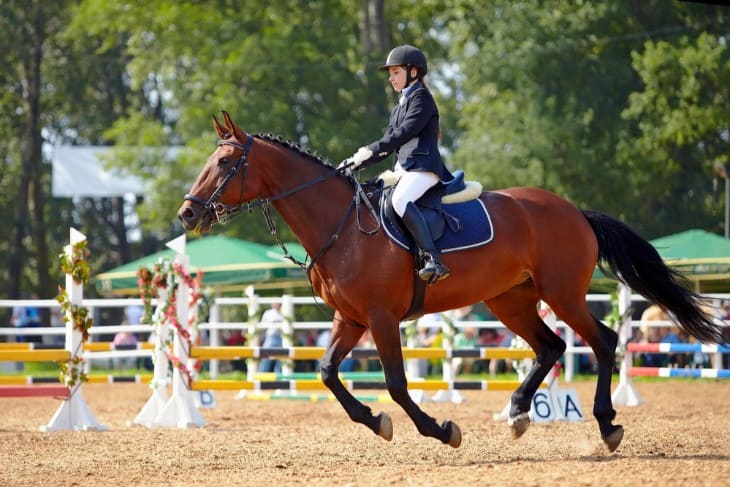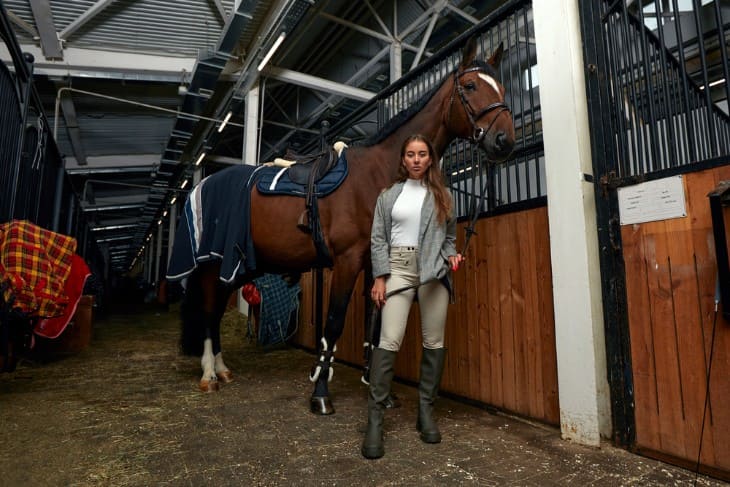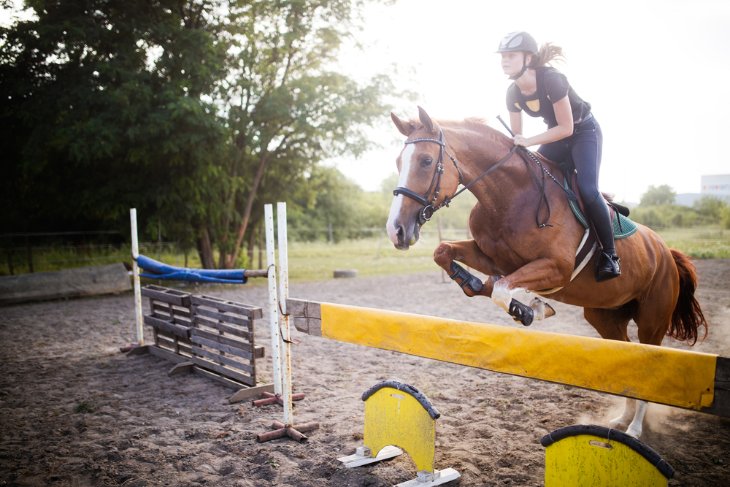Horse racing, a sport steeped in tradition and heritage, has long been associated with male dominance. However, in recent decades, women have risen to the forefront, shattering gender barriers and leaving an indelible mark on the UK horse racing scene. From jockeys to trainers and other key roles, the achievements of women in this sport have been both inspiring and transformative. In this article, we delve into the remarkable journey of women in UK horse racing, celebrating their successes, while acknowledging the challenges they have faced along the way.
Pioneering Female Jockeys - Breaking Barriers in a Male-Dominated Sport
Once deemed a sport unsuitable for women, horse racing's early years saw women relegated to the sidelines, limited to the roles of spectators and owners. However, a handful of intrepid trailblazers were determined to challenge this status quo. These pioneering female jockeys, with courage and tenacity, defied societal norms and paved the way for future generations.
One such trailblazer was Meriel Tufnell, who in 1972, became the first female jockey to ride in a professional race in the UK. Her breakthrough moment opened the door for other women to enter the competitive world of horse racing. Following in her footsteps, jockeys like Alex Greaves, Hayley Turner, and Josephine Gordon emerged, showcasing their talent and skills in the male-dominated arena.
Despite their undeniable talent, pioneering female jockeys faced resistance and skepticism from some quarters of the racing establishment. Critics argued that women lacked the physical strength and stamina required to compete at the same level as men. Nevertheless, these resilient women proved their critics wrong, displaying exceptional horsemanship and determination.
The Rise of Women Jockeys - Celebrating Their Achievements on the Track
The rise of women jockeys in UK horse racing has been nothing short of awe-inspiring. Today, female riders have successfully debunked the notion that gender should dictate one's ability to excel in this demanding sport. With sheer determination and dedication, they have earned their rightful place on the starting line, competing head-to-head with male counterparts.
Hayley Turner, one of the most celebrated female jockeys in recent times, achieved a historic victory in 2008 by becoming the first woman to ride 100 UK flat race winners in a calendar year. Her achievement shattered records and proved that gender should never be a hindrance to success. Subsequently, she continued to excel, securing more notable victories and gaining widespread respect within the racing community.
The accomplishments of female jockeys extend beyond the boundaries of the UK. Nicola Currie, for instance, made history by becoming the first female jockey to win a Group race in Qatar in 2019, showcasing the international impact of women in horse racing.
These successes have not only served as a source of inspiration for aspiring female jockeys but have also forced the industry to reassess its gender biases. More and more racing stables are providing opportunities for talented women riders, recognizing the value they bring to the sport.

Women Trainers - Shaping the Future of Horse Racing
While female jockeys have been making strides on the track, women trainers have been quietly revolutionizing the training yards. Historically, training racehorses was a male-dominated profession, but as women began to assert their expertise, their influence on the industry became increasingly evident.
Trainers like Henrietta Knight, who gained fame for guiding the legendary Best Mate to three consecutive Cheltenham Gold Cup victories, proved that gender was no barrier to success in the training realm. Her dedication and deep understanding of racehorses showcased the valuable skills that women bring to the craft of horse training.
As more women chose to pursue careers as trainers, they introduced fresh perspectives and innovative training methods to the stables. The nurturing approach that many female trainers adopt with their horses, combined with their technical expertise, has contributed to the overall well-being and performance of the equine athletes.
Through hard work and determination, these women have gained the trust of owners and the respect of their male counterparts. They continue to mentor the next generation of trainers, nurturing a diverse and dynamic community within the racing world.
Challenges on the Racetrack - Gender Bias and Stereotypes Faced by Women in the Industry
Despite the significant progress made by women in UK horse racing, gender bias and stereotypes persist as hurdles that female professionals must overcome. Historically, stereotypes have perpetuated the notion that horse racing is inherently masculine, with doubts cast over women's abilities to handle the physical and mental demands of the sport.
Female jockeys, in particular, have faced challenges on the racetrack. The lingering perception that men possess superior strength and stamina has often led to opportunities being unfairly distributed. While some owners and trainers have embraced the rise of female jockeys, others remain hesitant to give them opportunities in high-profile races.
Additionally, media coverage has sometimes focused disproportionately on the gender of jockeys rather than their skills and achievements. This emphasis on gender can undermine the accomplishments of women riders and trainers, perpetuating the belief that their success is somehow less deserving.
Overcoming these challenges requires a collective effort from the industry, stakeholders, and fans alike. By celebrating the achievements of women in horse racing and promoting a culture of inclusivity, the sport can pave the way for a more equitable future.
Overcoming Obstacles - Success Stories of Resilient Women in Horse Racing
In the face of gender bias and stereotypes, women in UK horse racing have demonstrated unwavering resilience and determination. Countless success stories exemplify the extraordinary talents of female jockeys, trainers, and professionals who have risen to the top despite the odds stacked against them.
Take Rachael Blackmore, for instance, a trailblazing jockey whose name has become synonymous with success and perseverance. In 2021, she made history by becoming the first female jockey to win the prestigious Grand National, aboard the horse Minella Times. Rachael's triumph on the grueling Aintree course resonated across the world, proving that women possess the skill and mettle to excel in the toughest races.
In the training ranks, names like Jessica Harrington and Emma Lavelle have etched their mark with a string of remarkable achievements. Jessica trained the brilliant dual Cheltenham Gold Cup winner Sizing John, showcasing her prowess in preparing elite racehorses for the biggest stages. Emma, on the other hand, has been celebrated for her nurturing approach to training horses, emphasizing their mental well-being alongside their physical capabilities.
Beyond the track and training yards, women have also excelled in key roles, such as racing administrators, veterinarians, and media personnel. Each success story reinforces the message that women's contributions are vital to the continued growth and prosperity of UK horse racing.

Empowering Women in Key Roles - The Changing Landscape of UK Horse Racing
As more women make their mark on the UK horse racing scene, the industry is undergoing a profound transformation. Empowered by the achievements of their pioneering peers, women are no longer content with being relegated to the sidelines but are claiming their rightful places in various key roles.
Racing organizations and governing bodies are increasingly recognizing the importance of gender diversity and inclusivity. Initiatives have been launched to promote opportunities for women in the sport, from mentorship programs to scholarships aimed at fostering the next generation of female jockeys and trainers.
Furthermore, gender equality campaigns have garnered support from racing fans and stakeholders, contributing to a shift in perception within the broader racing community. Women are no longer viewed as exceptions but rather as integral contributors to the sport's success.
The representation of women on racecourse boards and in administrative positions has also improved, ensuring that their voices are heard in decision-making processes. As a result, the industry is becoming more receptive to embracing change and creating an environment where talent and passion triumph over gender.
Gender Diversity and Inclusivity Initiatives - Fostering Equality in the Sport
Recognizing the need to promote gender equality, various initiatives have been implemented to create a more inclusive environment within UK horse racing. Racing authorities and organizations have taken significant steps to ensure that women are given equal opportunities and support in pursuing their careers in the industry.
One such initiative is the introduction of mentorship programs for aspiring female jockeys and trainers. These programs pair talented women with experienced professionals, offering guidance and advice to help them navigate the challenges of the sport. Mentorship not only provides valuable insights but also instills a sense of camaraderie and support among women in the racing community.
Furthermore, racing schools and academies have actively encouraged female participation, providing specialized training and resources to nurture talent from an early stage. By breaking down traditional barriers, these institutions have played a crucial role in preparing the next generation of women in horse racing.
Racing organizations have also worked to address gender disparities in prize money, ensuring that races with equal difficulty and prestige offer equal rewards for both male and female participants. This step helps to bridge the gap between male and female earnings, motivating women to pursue careers in racing with the assurance of fair compensation.
The commitment to gender diversity goes beyond the track and training yards. Efforts have been made to promote gender balance in administrative roles and governing bodies, reflecting the importance of women's perspectives in shaping the future of the sport.
Inspiring the Next Generation - Encouraging Women's Participation in the Racing World
As women continue to break barriers and achieve remarkable feats in UK horse racing, their impact extends far beyond the confines of the sport. Their triumphs have inspired a new generation of young girls to dream big and aim for greatness.
The visibility of successful female jockeys and trainers in the media and at prestigious racing events has provided young girls with role models to look up to. These trailblazers have shown them that gender is not a limitation and that with passion, dedication, and hard work, anything is possible.
Racing schools and academies are now actively reaching out to encourage more girls to consider a career in horse racing. With tailored programs and scholarships, they aim to attract diverse talent and nurture a future generation of female riders, trainers, veterinarians, and racing administrators.
By engaging with local communities and schools, the racing industry is also working to dispel stereotypes and myths surrounding the sport. Grassroots initiatives, such as stable visits and meet-and-greet events, allow young girls to interact with women professionals, fostering a deeper understanding of the opportunities available to them.
Furthermore, racing authorities are actively promoting gender diversity in racing-related media coverage. By highlighting the achievements of women in the sport, they aim to showcase the wide range of career paths available, inspiring young girls to envision themselves as part of the racing world.
Conclusion
Together, let us celebrate the achievements of women in UK horse racing, acknowledging the challenges they have overcome, and cherishing their invaluable contributions. With unity and determination, we can create a racing world that truly reflects the talents and diversity of its participants, setting the stage for a bright, inclusive, and extraordinary future.








